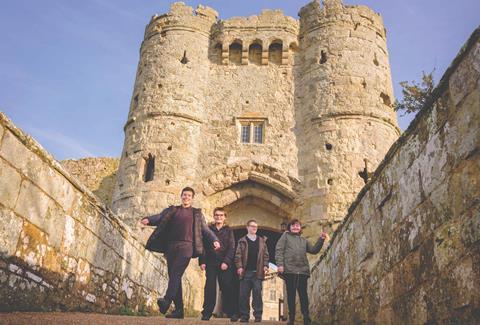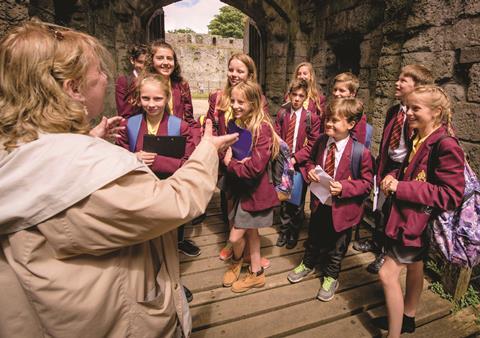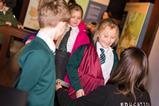We speak to Fran Gibbons at English Heritage about how the charity supports teachers and what’s available for school visits in the future.

Why is it so important that school groups visit heritage sites?

Visiting heritage sites is a fantastic way to bring learning to life outside of the classroom, and provides opportunities for cross-curricular learning and developing an appreciation of cultural sites.
Through seeing and touching history for themselves, students are better able to imagine key events and aspects of life from a historic time period. Castles, stone circles, abbeys, artefacts and costumes all help to build a picture of the past in a way that is more effective than studying in a classroom, and children and young adults are able to develop their own understanding of Britain’s rich cultural heritage through direct interaction with sites.
Could you give us an overview of what English Heritage’s education programme involves?
We offer free education visits to English Heritage and you can plan your visit to best suit your learning objectives. There is a range of downloadable and on-site resources that you can use to support learning.
For hands-on, immersive sessions led by one of our site experts, book a Discovery Visit workshop. You’ll experience a blend of specially designed activities including site tours, role play, object handling and costumes. Each one is different, drawing on the unique history of the site and its past residents. We also work with exam boards to offer in-depth GCSE tours, with a focused approach to studying for History exams.
What’s new at English Heritage sites?
At Carisbrooke Castle on the Isle of Wight, schools can look forward to diving into the history of the well and donkeys with our ‘Water, Wells and Donkeys’ session (KS1-2), or at Lullingstone Roman Villa in Kent, unearth the secrets of life, technology and religion in Roman Britain, in ‘Roman Life and Learning from Archaeology’ (KS2).
Also due to launch this year is a project at Boscobel House in Shropshire, where we will reintroduce a Victorian farmyard, refresh the site information and facilities, and open a new education space.
Last year we ran an amazing writing competition for children across the country, and we were very impressed by the brilliant stories sent in. This year, we’re planning a poetry competition, so look out for details on our website.

How can a visit to an English Heritage site support learning across the curriculum as well as develop soft skills?
Visiting an English Heritage site offers a range of opportunities for learning across the curriculum. Setting projects and activities to complete during a trip to an English Heritage site encourages team work and independent learning. We know that spending time outside helps to boost student wellbeing, and being able to talk about their own positive experiences back in class will develop confidence and speaking skills.
What help is available for teachers looking to visit an English Heritage site?
Free downloadable resources including teachers’ kits, activity and learning suggestions are available on the English Heritage website. On site resources are also available at selected sites, from handling collections to costumes and explorer backpacks. Details of these can be found on our website, or talk to our booking team for more information.
To help you organise your day, practical planning documents, including hazard information and risk assessments for our expert-led sessions are also available online, and on booking your visit you’re entitled to a free planning visit before the date of your trip, to allow you to familiarise yourself with the site.
How can schools make the most of their visit?
Use your free planning visit and our downloadable resources to help plan your day in advance, as well as ideas to support your learning in the classroom before and after you visit.
Encourage your class to make the most of their time and ask questions: our team members like a challenge and we haven’t found many questions they can’t answer so far!
If members of your group have any additional needs, speak to our bookings team in advance, so that we can advise you of the best options for your visit, and make adjustments to any booked sessions to suit your needs.
You can find more information by emailing bookeducation@english-heritage.org.uk or visiting www.english-heritage.org.uk/schools













